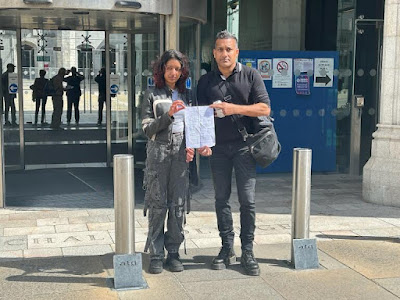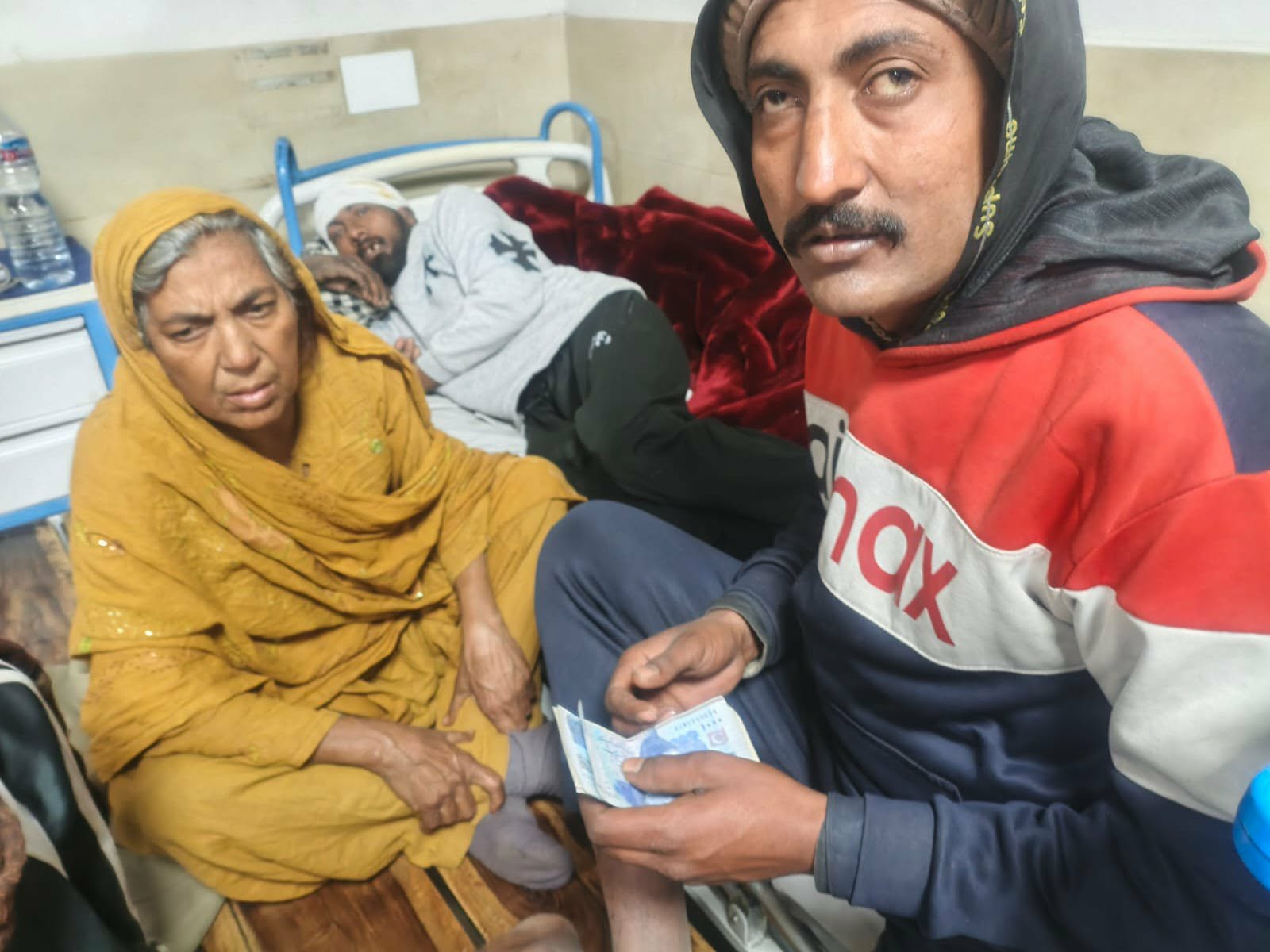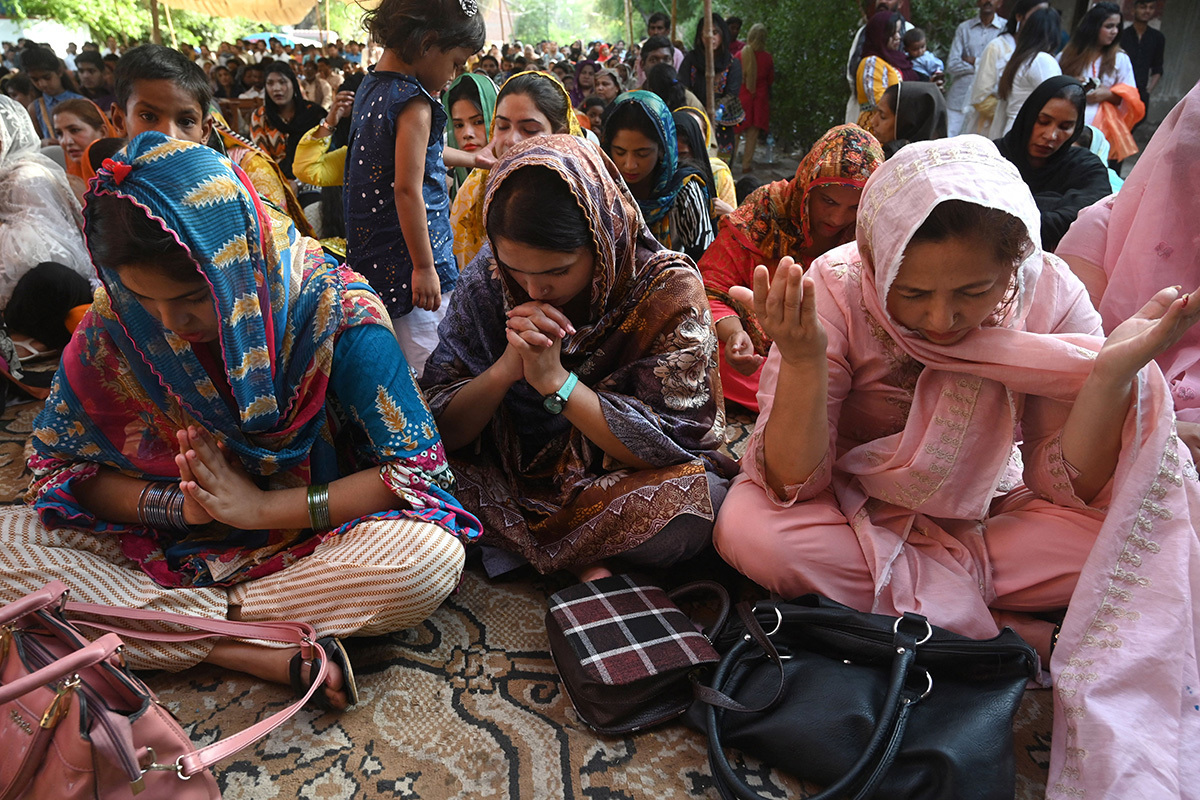UK: Wilson Chowdhry and his daughter Hannah Chowdhry taking the lead in the first meeting with senior Aberdeen council officers, advocating f
Toronto – November 25, 2005 – On the occasion of the Commonwealth Heads of Government Meeting (CHOGM) in Valletta, Malta (November 25-27), the Kashmiri-Canadian Council (KCC) has urged the Commonwealth leaders to help the people of Kashmir to exercise their right of self-determination as promised to them by the United Nation Security Council.
Mr. Mushtaq A. Jeelani, Executive Director of the KCC, in separate letters to 54 heads of government of the Commonwealth and the Secretary-General of the Commonwealth, expressed his serious concern about systematic and gross human rights abuses in Indian-administered Jammu and Kashmir.
He reminded the leaders that the Kashmir issue has dominated the geopolitics of South Asia for the past 58 years because of enduring rivalry between the two Commonwealth partners – India and Pakistan. They have fought three wars since their independence from Britain in 1947, two of them over the disputed region of Kashmir.
Mr. Jeelani underlined that the two sides declared a ceasefire across the divided line within the disputed State of Jammu and Kashmir in November 2003, and later launched a peace process committed to resolve the Kashmir issue along with all other issues through peaceful negotiations, but progress has been tortuously slow. Despite the warming ties, the killing continues in Indian-administered Kashmir with approximately a dozen innocent civilians killed each day by the occupying Indian troops.
He said the disputed region is the densest and the largest militarily occupied area of the world. The uprising against foreign occupation and alien domination that began in 1989 after India's rigged elections in 1987 has been worsened by the brutal oppression of the Indian occupation forces against the Kashmiri people demanding a UN sponsored plebiscite. During the past 16 years, the 700,000 strong Indian forces have killed more than 93,000 Kashmiris; thousands have disappeared; torture has left thousands paralysed; thousands of young and old women have been raped; property worth hundreds of millions dollars has been destroyed and the suffering and devastation continues unabated, which has sadly drawn no significant attention from the international community.
He reminded the leaders that the people of Jammu and Kashmir continue to be deprived of their inalienable right of self-determination, which is enshrined in the resolutions of the UN Security Council, and have remained unimplemented for over half a century. The April 1948 Security Council resolution declared: "the only way to settle the Kashmir problem peacefully was to demilitarise the State and hold a plebiscite under the UN supervision." Subsequent UN Security Council resolutions of August 30, 1948 and January 5, 1949 established a ceasefire and the United Nations Military Observer Group in India and Pakistan (UNMOGIP) to ensure its observance. The Security Council pronounced that the future status of the Jammu & Kashmir would be decided through the democratic means of a free and impartial plebiscite conducted under the auspices of the United Nations.
Mr. Jeelani underlined that the right of self-determination, enshrined in Article 1 of the United Nations Charter, is the principle on which the whole system of international relations is based. It is the most basic collective right of all people and nations, and the indispensable foundation of all individual human rights.
He reminded the leaders that the International Covenant on Civil and Political Rights imposes specific obligations on all nations not only in relation to their own population but vis-Ã -vis all people, who have not been able to exercise, or have been deprived of the possibility of exercising their right to self-determination. It urges nations to take positive action to facilitate the realisation of, and respect for the right of people to self-determination.
The Executive Director recalled that the 1993 World Conference on Human Rights in Vienna, the 1994 Social Summit in Copenhagen, the Millennium Summit 2000 and the UN World Summit 2005 have all affirmed the right of all people to self-determination in situations of foreign occupation and alien domination.
Mr. Jeelani underscored that in accordance with their obligations under the UN Charter and the International Covenants, the world community, particularly the Commonwealth nations, should play a positive role to enable the people of Jammu & Kashmir to exercise their right of self-determination and to end their suffering and deprivation.
He emphasised that the people of Kashmir are yearning for peace. However, they do not want peace that does not guarantee total freedom from foreign occupation and alien domination. Moreover, the people will never compromise on their right of self-determination. Their struggle to achieve that right of self-determination will not be extinguished until India and Pakistan accept its exercise by the people of Jammu and Kashmir, through what the UN Security Council has called a "UN supervised plebiscite."
He cautioned the leaders that India and Pakistan cannot separately or jointly decide to discard the UN resolutions on the future of Kashmir – it is the "collective will" of the Kashmiri people that has been empowered by the said resolutions to make that determination.
The Executive Director reminded the 54 leaders of the Commonwealth nations that the 7.6-magnitude earthquake that hammered Kashmir on October 8 has caused massive loss of life and destruction of property of such colossal magnitude – more than 73,000 dead and close to 3.5 million homeless. The people on both sides of the ceasefire line (a.k.a. Line of Control) are enraged by their respective administration authorities' slow response to the most devastating natural disaster to hit the region in recorded history. Now, the people of Jammu and Kashmir strongly believe that if they were citizens of the sovereign nation or of either country, the response and approach to deal with such gigantic situation would have been altogether different, which could have, as well, saved many more lives and alleviated the suffering of the affected people faster.
"The fact of the matter is that India and Pakistan's traditional state of distrust did not bury under the earthquake's rubble. Neither Islamabad nor New Delhi appeared ready to put animosity behind them. But under intense pressure from Kashmiris, the rivals agreed to open the ceasefire line – for limited relief – but baton charged Kashmiris for stepping across the so-called Berlin Wall within the disputed State of Jammu and Kashmir," commented Mr. Jeelani.
The Executive Director recalled that both the Harare and Singapore Declarations reaffirmed commitment of the Commonwealth to the promotion of international understanding and world peace. The Harare Declaration further reaffirmed "fundamental human rights including equal rights...for all...regardless of their political belief" on the principles to which the Commonwealth countries are committed, but the Commonwealth has been turning a blind eye to the unprecedented human rights abuses committed by the occupation forces in Indian-administered Jammu and Kashmir, particularly during the past 16 years.
He applauded the definition of human rights by the Commonwealth Secretary-General Don McKinnon: "I know one cannot eat human rights but they must be seen to be as important as the availability of the food we eat or the air we breathe, and as beneficial for human life."
Mr. Jeelani urged the leaders that the Commonwealth is in a position to play a key role in bringing an end to the longstanding political conflict in the interest of peace and prosperity of South Asia's billion plus people.
He requested the leaders to encourage the UN Security Council to implement its longstanding resolutions on Jammu and Kashmir; by doing so the Commonwealth will in principle implement the Harare Declaration: "support the United Nations and other international institutions in world's search for peace, disarmament and effective arms control; and in the promotion of international consensus on major political, economic and social issues."
The Executive Director warned that the failure of the Commonwealth to address the unresolved issue of Kashmir would be making a mockery of the 1991 Harare Declaration and point to institutional weaknesses in the Commonwealth's capacity to promote and protect human rights.
Mr. Jeelani hoped that the Commonwealth could help India and Pakistan to transform the Kashmir dispute from being a bone of contention to a bridge of understanding for a lasting peace in South Asia.
"Given their commitment to world peace and stability in the region and their support for promoting human rights, democracy, good governance and the rule of law, the KCC urges them [Commonwealth leaders] to press for a peaceful political solution of the conflict and an immediate end to untold misery in Kashmir," concluded the Executive Director.
You May Also Like
Sialkot: A 24-year-old Christian farm worker with an intellectual disability was brutally beaten by his Muslim employer in Sialkot for arriving lat
Faisalabad (January: Human Rights Focus Pakistan (HRFP) strongly condemns the brutal sexual assault of a six-year-old Christian girl, Shamaya Salee

"Trial of Pakistani Christian Nation" By Nazir S Bhatti
On demand of our readers, I have decided to release E-Book version of "Trial of Pakistani Christian Nation" on website of PCP which can also be viewed on website of Pakistan Christian Congress www.pakistanchristiancongress.org . You can read chapter wise by clicking tab on left handside of PDF format of E-Book.









